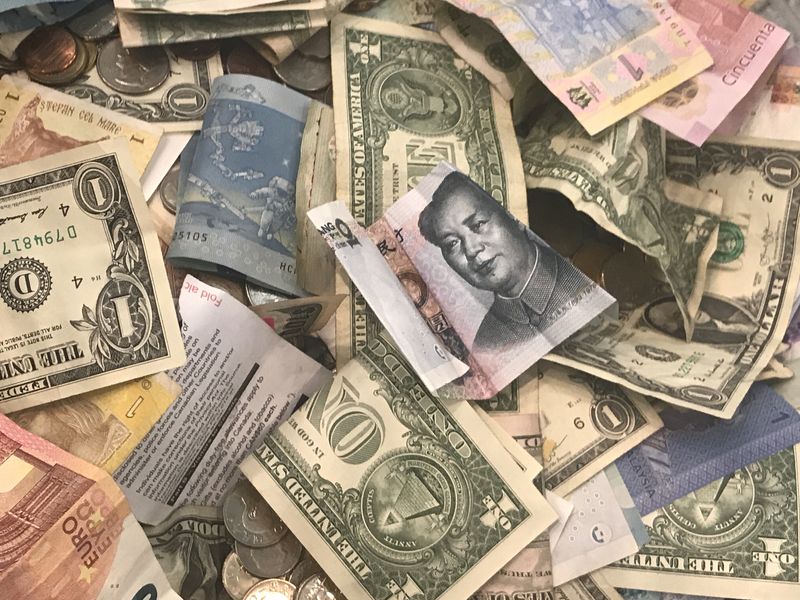By Nell Mackenzie
LONDON (Reuters) - The best performing hedge funds are falling victim to their own success as institutional investors such as pension funds and university endowments cut back their most profitable positions to make up for pain elsewhere.
Investors yanked $38 billion from top performing hedge funds in the 12 months to end-October, having pulled out $14 billion in the year earlier period, data from hedge fund specialist Aurum Research shows. These hedge funds returned, on average, more than 19% and 18%, respectively, in the two 12-month periods, Aurum Research said.
While it's not unusual to ditch low performing hedge funds and redeem profits seasonally, the current exodus is being driven by pension funds and universities sacrificing their strongest investments to hold on to private equity and venture capital portfolios that now cost more than they yield, more than a dozen people familiar with these deliberations say.
To avoid selling these investments at a likely loss, institutions would prefer to maintain them in the hope they regain value someday, the sources said.
The trend is set to continue into 2024, said the sources, which include family offices, fund of funds, board and trustee members of pensions and university endowments as well as private banks advising institutions and sovereign wealth funds, overseeing a combined trillions of dollars of assets.
No one wants to sell their private equity holdings and face the discounts likely to be applied in markets, said Michael Oliver Weinberg, who was previously a portfolio manager and board member at Dutch pension fund APG and now teaches at Columbia Business School.
"These pension funds and endowments have been forced to sell what they can, even outperforming liquid hedge funds to fund their capital calls," said Weinberg.
Funds invested in private equity and venture capital are generally decided upfront but the actual payments, or "capital calls", become due a chunk at a time.
'MASSIVE WRITE DOWNS'
Auditors customarily review portfolios at the start of each year. Institutions, suspecting that these private equity and venture capital portfolios have dropped in value, are trying to free up cash because they face higher costs and pressure to maintain returns, several sources said.
Any fall in the value of private equity and venture capital holdings will need to be made up.
Veteran hedge fund investor Neil Datta said endowments, in particular, were struggling because of the high share of money they allocated to private investments in recent years.
How much these are worth is typically not determined on a regular basis and the high valuations they carried when interest rates were low may have shifted as rates rose and deal activity fell.
"Those that excelled in 2019 and '20 face massive write downs now," said Datta. "Auditors will be coming in the next quarter and some of those positions will be slashed 30-40%. You'll have redemptions now as investors, in need of cash, are getting their houses in order."
Private equity buyout and venture capital funds in the first half of 2023 asked investors to stump up $66 billion more than was paid out in profit, MSCI data shows. While full-year data is not available yet, this looks likely to be the second year running investors have paid more than they received.
Profits from private equity are paid out when merger and acquisition (M&A) deals go well or when a company matures enough to go public.
But private equity firms have struggled to exit their investments as deal making dried up. Worldwide M&A deal volumes declined during the first eleven months of 2023, to the lowest amount seen in that time period in a decade, LSEG data shows.
Initial public offering (IPO) volumes have also fallen to a 7-year low in the year to Wednesday, according to LSEG data, and distributed profits have shrunk.
Columbia's Weinberg noted that investors had piled into private equity on an assumption of low rates, higher valuations and an exit deal.
"Today, rates have risen, IPO markets are dark and M&A is diminished. These investors' models expected a flow of money, in the form of profit distributions, to return. But those monies have just not come in," he said.
Outflows mean tougher times for hedge funds and carry an opportunity cost for public pensions and university funding, with institutions needing investments that are paying today.
Just keeping the lights on has become more costly, said one university board member.

"There are people redeeming from systematic and quantitative hedge funds that probably shouldn't and maybe don't want to, but they also don't want to sell their less liquid investments at fire sale prices," said Datta.
"The challenge is, if you expect continued volatility, you may lose potential upside by taking chips off the table."